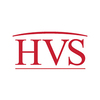European Hotel Valuation Index 2008 - By Elana Bader and Dominique Bourdais, HVS International
HVS’s London office has released the latest edition of its annual review of European hotel value trends, the Hotel Valuation Index (HVI). The survey shows that hotel values achieved a fourth consecutive year of growth, increasing by 2.6% in 2007, compared with an increase of 9.0% in 2006. Values per room largely exceed the peak values of 2000.
Download the Hotel Valuation Index (HVI) (PDF Document)
Commenting on the results, survey co-author Dominique Bourdais, a director of HVS, noted that London has retained its position as the most expensive city in which to acquire a hotel. Paris is, however, catching up fast. "The European average continues to be led by the dominant primary markets, particularly London, Paris, Zürich and Geneva, with Moscow’s consistently strong growth also contributing significantly," he noted.
"Once again Moscow had the greatest percentage growth in value, at 14% in 2007, continuing to be fuelled by supply constraints which have pushed up the RevPAR by double figures every year for at least the past five years," he added.
Survey co-author Elana Bader commented that 2007 will be remembered for being the year of compressed yields, cheaply available debt, large portfolio divestments and the two-pound dollar.
"The average European values per hotel room in 2007 remain at their highest levels in history," she commented. "This is despite the inclusion of six additional Eastern European capitals (Belgrade, Bratislava, Bucharest, Riga, Tallinn and Zagreb, with predominantly lower hotel values than the European average) to the index this year," she added.
The authors also noted that the emergence of the ‘credit crunch’ around August 2007 has since destabilised the market and has played a part in some markets’ declines in value by the end of 2007. "Overall, projects at the moment are proving more difficult to finance, and debt is certainly more expensive," noted Dominique Bourdais. "This has slowed down development growth and discouraged buyers to some extent, resulting in fewer transactions in the latter part of last year."
This is expected to continue to have a negative impact in 2008 (at least for part of the year) as lenders are more cautious and charge a premium for providing debt.
Equity investors are equally seeking higher returns. Yields are therefore expected to follow an upward trend in 2008.
Elana Bader noted that investors and operators now have the opportunity to look at business optimisation and efficiency in the form of better cost control and streamlining, and also to better determine the trajectories of supply and demand trends across Europe.
"Yields have been at their lowest in years; it is entirely probable that the European hotel market is simply in a time of readjustment and that it will have regained momentum before 2009. As such, in 2008 we expect values in general to level out in the first half of the year before picking up momentum closer to 2009," she concluded.
The European HVI has tracked trends in hotel values in key regional markets since 1993. The survey covers upscale hotels in 34 gateway cities across the continent.
Dominique Bourdais
Associate Director
(44) 207 878 7721
HVS
